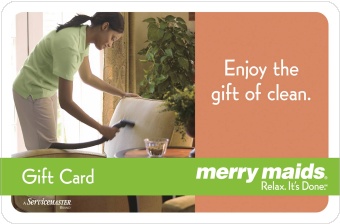For older people, managing the challenge of self-care is a delicate balance. Many geriatric patients are hesitant to ask for or accept financial assistance from friends or family. They worry that they might burden those they love, knowing that those upon whom they rely have their own obligations.
“You’d be surprised. I have elderly patients sign out against medical advice because there is no one to feed their dog. They come back later, half dead. They risk their lives because there is no one who thinks to help with their pets."
 This coming from Andrew Wilson, M.D., an ER doc in a rural hospital. He speaks without judgment, from a place of compassion. Dr. Wilson reminds us that even those with insurance are not always fully covered. For someone living on a fixed income, even having 80% of these costs covered may still not be enough.
This coming from Andrew Wilson, M.D., an ER doc in a rural hospital. He speaks without judgment, from a place of compassion. Dr. Wilson reminds us that even those with insurance are not always fully covered. For someone living on a fixed income, even having 80% of these costs covered may still not be enough.
Give InKind asked Dr. Wilson to identify ten things elderly people often need but don’t always get. Sometimes these needs can fall through the cracks, so take this as a checklist and check in with a loved one.
- Pet care – Elderly patients living alone often need help with their pets. Those wishing to assist such a patient would do well to check in with them about pet care and make the necessary arrangements for care, boarding, feeding, etc.
- Dental Care – Dental insurance is not comprehensive and access to care is often very limited. As people age and dental care becomes a greater concern. Pain and discomfort is a common complaint among geriatrics. Look to help out with that. Ask about the dental care they are able to access and see whether you can help to provide that.
- Colostomy care supplies – These very necessary items are not always covered by insurance.
- Wound care – This is especially relevant for patients with diabetes. Foot care items for someone with diabetes can be healing. They are, however, expensive and sometimes out of reach for patients with a limited income.
- Rides to and from medical appointments. Cab rides are a significant expense, especially if the need arises regularly. Check whether services like Lyft and Uber operate near you.
- Train tickets to medical experts. For people with unusual cancers or who require specialized care, living in a rural area can present a challenge. For older patients, a local expert might not be available and the care they need might be located in a city several hours away. Older people people may no longer feel comfortable about driving long distances or maneuvering urban landscapes. Arranging help with transportation and accommodation is well worth it.
- Eyewear – It is no secret that prescriptions for many elderly people are out of date. In an effort to save money, many will not replace glasses when they break, opting instead to fix them with tape. Take a loved one to a doctor and make sure their visual needs are taken care of. Offer them a gift card to Target so that they can go and purchase items for eye care – such as eye drops, readers, etc.
- Smart Tablets – Many geriatrics enjoy reading books but can no longer see the print. Tablets have settings that allow readers to adjust font size.
- Orthotics. Make sure orthotics fit well. Geriatric falls are commonplace and are often the result of ill-fitting footwear or poorly made orthotics. Take your loved one for a pedicure to ensure feet and nails are taken care of properly. Falls are a common reason for hip breakage and could be the result of a poor gait.
- Hearing Aid Batteries – These batteries can be budget busters for someone on a fixed income. Make sure to check whether a loved one has an adequate number of these batteries on hand. Life can be depressing and unnecessarily difficult if you can’t hear properly, and plus, people are safer if they hear can well.
Helpful Products
Give InKind does not provide medical advice, diagnosis, or treatment. We have an affiliate relationship with many of the advertisers on our site, and may receive a commission from any products purchased from links in this article. See Terms & Conditions.




